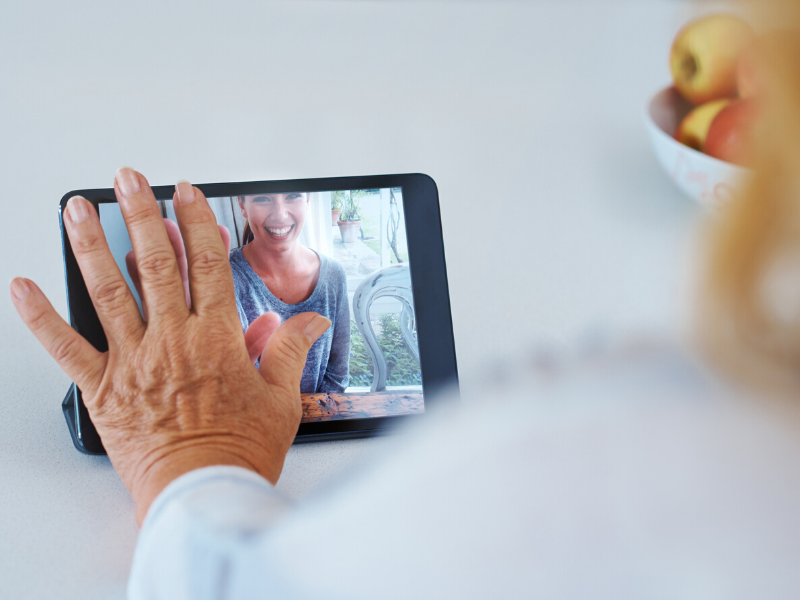Bringing Your Loved Ones Home During the COVID-19 Crisis

This is a trying time for everyone in the greater Boston area, but especially for those of us with older relatives and loved ones who are at greater risk of complication from coronavirus. Amid general fear and uncertainty, families with older relatives also feel the burden of ensuring their safety. One big question you might be asking yourself is, “Should I bring my aging loved one into my home at this time?”
Many are asking themselves this question right now, whether loved ones live in a care community or independently. Every family is different, both in the needs of their loved and their capabilities to meet those needs. Before making the decision, consider your unique situation. As a family member, you may be making decisions amid many emotions, and as aging life care professionals, we would like to help you think through these issues.
What considerations should I include in my decision-making process?
- Whether your loved one is independent or is relying on others for care.
- Determining whether you can serve as a primary caregiver and what assistance you might need.
- Ensuring that you are working with support agencies that have precautions in place to prevent caregivers from coming to work sick.
- Detailing a contingency plan, should your loved one or another member of the household be diagnosed with COVID-19.
- Evaluating the safety of your home versus the current living situation – does your home decrease exposure to the virus and is it physically safe for your loved one?
If your loved one lives independently:
Does your loved one live alone? Depression is a serious issue for everyone during this time, and if your mom or dad lives alone and relies on weekly walks or golf outings with friends for social interactions, they may be feeling more alone and would benefit from the company if they joined your household.
How seriously are they taking social distancing? Do they have both the inclination and ability to practice social distancing? This concept may be too confusing to some people at this time, and many older adults are taking the situation less seriously than their adult children. If your mom or dad lives in an apartment building and must use the elevator to get outside for a breath of fresh air, it may be difficult for them to practice distancing even if they understand the importance.
Does your aging loved one need help with grocery delivery or receiving other necessities, such as prescription medication, during this time? If he or she cannot handle that alone, could you facilitate support for them?
If your loved one currently relies on an outside caregiver regularly, is the person or agency putting the necessary precautions into place to continue to provide this care safely? If you are not satisfied with the current situation, can you work with the caregivers to improve the situation or do you need an external assessment? You might consider whether you can meet the same needs more effectively in your home while balancing other responsibilities, such as work, children, and your own health.
If your loved one lives in a senior care community or skilled nursing facility:
The first consideration is the level of care your loved is one receiving. Could you replicate this care at home safely and effectively? If your loved one is in an independent living community or assisted living facility receiving minimal support, they are likely still receiving the some social benefits of that community along with the support of having their day-to-day needs met, such as grocery and meal delivery and ensuring access to medications. However, these needs may be easy for you to meet at home. If they are living in a skilled nursing or memory care facility, they probably have higher level care needs that may be difficult for you to manage in your home.
If you can meet the needs of your loved one at home, would you (and they) be happier in this situation, and for how long? Many communities are requiring residents to self-isolate for two weeks prior to a move-in to minimize the risk of an outbreak in their community, so if the situation does not work out, it might be difficult to change. Given the uncertainty of the situation, you may be doing this for weeks, or months.
Senior care facilities are held to certain standards and regulations in normal times, and this is being increased during the COVID-19 crisis. If you have not received communications from your loved one’s facility regarding their precautionary steps, ask for them. And consider asking how you can help them (do they need PPP donations or advocacy for testing) or how they can help you with virtual visits, if your loved one cannot manage that technology independently.
Our team is here help address these types of complex issues during this epidemic. In addition to full assessments, we are currently offering brief virtual consultations to help families navigate during this difficult time. Contact us today.
![LifeCare Advocates [logo]](https://www.lcadvocates.com/wp-content/uploads/sites/270/2017/11/logo.png)